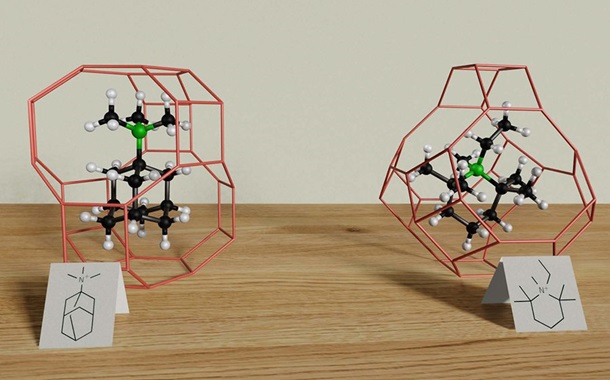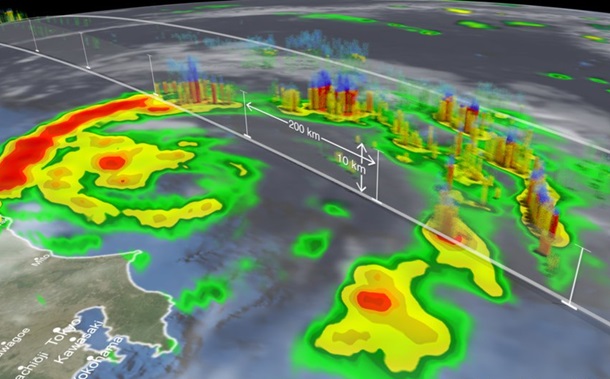Generative AI for Enhancing Accessibility and Inclusion in Higher Education: A Systematic Review
Downloads
This study reviews existing literature on generative artificial intelligence (AI) and its accessibility for students with visual, hearing, and motor disabilities in higher education. The objective is to identify gaps in the implementation of inclusive education practices. The PRISMA protocol guided the review process, and the Scopus and Web of Science databases were selected for their recognized academic rigor and comprehensive coverage. The first phase involved the review of 54 articles in English from 2023 to 2024. The selection process involved prioritizing articles based on empirical scientific studies on AI applications for students with disabilities, and discarding articles that did not meet the criteria. Ultimately, only five articles were selected. The findings reveal a significant research gap regarding the role of generative AI in supporting these students. Notably, the selected articles tend to focus more on sensory disabilities than on motor disabilities. This study is pioneering in pointing out the lack of research on motor disabilities during the analyzed period, a key aspect of AI in higher education. These findings underscore the necessity of further research that aligns with the UN 2030 Agenda, specifically Goals 4 (Quality Education) and 10 (Reduced Inequalities), promoting the development of AI tools that foster equal opportunities and inclusive education.
Downloads
[1] Cruz Argudo, F., García Varea, I., Martínez Carrascal, J. A., Ruiz Martínez, A., Ruiz Martínez, P. M., Sánchez Campos, A., & Turró Ribalta, C. (2024). Generative artificial intelligence in university teaching: Opportunities, challenges, and recommendations. CRUE Universidades Españolas, Madrid, Spain. Available online: https://www.crue.org/publicacion/la-inteligencia-artificial-generativa-en-la-docencia-universitaria/ (accessed on May 2025).
[2] Zhumazhan, B., Zhumadilova, M., & Abdykerimova, E. (2024). The future of artificial intelligence in inclusive education. Yessenov Science Journal, 48(3), 63-70. doi:10.56525/amwi6491.
[3] Chan, C. K. Y., & Colloton, T. (2024). Generative AI in higher education: The ChatGPT effect. Routledge, New Jersey, United States. doi:10.4324/9781003459026.
[4] Hong, B. S. S. (2015). Qualitative analysis of the barriers college students with disabilities experience in higher education. Journal of College Student Development, 56(3), 209–226. doi:10.1353/csd.2015.0032.
[5] United Nations. (2016). Convention on the rights of persons with disabilities: Roundtable 3: Improving accessibility of information and technology and inclusive development (CRPD/CSP/2016/4). United Nations, New York, United States. Available online: https://undocs.org/en/CRPD/CSP/2016/4 (accessed on May 2025).
[6] United Nations. (2024). Reduced inequalities: Sustainable Development Goal 10. United Nations, New York, United States. Available online: https://www.un.org/sustainabledevelopment/inequality/ (accessed on May 2025).
[7] United Nations. (2024). Education: Sustainable Development Goal 4. United Nations, New York, United States. Available online: https://www.un.org/sustainabledevelopment/education/ (accessed on May 2025).
[8] Marchena Sekli, G. F., Godo, A., & Véliz, J. C. (2024). Generative AI solutions for faculty and students: A review of literature and roadmap for future research. Journal of Information Technology Education: Research, 23, 14. doi:10.28945/5304.
[9] Ahmed, Z., Shanto, S., Rime, M., Morol, M., Fahad, N., Hossen, M., & Abdullah-Al-Jubair, M. (2024). The generative AI landscape in education: Mapping the terrain of opportunities, challenges, and student perception. IEEE Access, 12, 147023–147050. doi:10.1109/ACCESS.2024.3461874.
[10] Asad, M., & Ajaz, A. (2024). Impact of ChatGPT and generative AI on lifelong learning and upskilling learners in higher education: Unveiling the challenges and opportunities globally. The International Journal of Information and Learning Technology, 41(5), 507-523. doi:10.1108/ijilt-06-2024-0103.
[11] Akinwalere, S. N., & Ivanov, V. (2022). Artificial intelligence in higher education: Challenges and opportunities. Border Crossing, 12(1), 1–15. doi:10.33182/bc.v12i1.2015.
[12] Krause, S., Panchal, B., & Ubhe, N. (2024). The evolution of learning: Assessing the transformative impact of generative AI on higher education. ArXiv, 10551. doi:10.48550/arXiv.2404.10551.
[13] Ashtikar, S. P., Manoharan, G., & Muppidi, S. (2024). Navigating education in the age of generative AI. AIP Conference Proceedings, Vol. 3078(1), 060026. doi:10.1063/5.0240938.
[14] Nikolopoulou, K. (2025). Generative artificial intelligence and sustainable higher education: Mapping the potential. Journal of Digital Educational Technology, 5(1), ep2506. doi:10.30935/jdet/15860.
[15] Acosta-Vargas, P., Salvador-Acosta, B., Novillo-Villegas, S., Sarantis, D., & Salvador-Ullauri, L. (2024). Generative artificial intelligence and web accessibility: Towards an inclusive and sustainable future. Emerging Science Journal, 8(4), 1602–1621. doi:10.28991/ESJ-2024-08-04-021.
[16] Gonzalez, L., O'Neil-Gonzalez, K., Eberhardt-Alstot, M., McGarry, M., & Van Tyne, G. (2024). Leveraging generative AI for inclusive excellence in higher education. EDUCAUSE Review - The Voice of the Higher Education Technology Community. Available online: https://www.educause.edu/ (accessed on May 2025).
[17] Hyatt, S. E., & Owenz, M. B. (2024). Using universal design for learning and artificial intelligence to support students with disabilities. College Teaching, 1-8. doi:10.1080/87567555.2024.2313468.
[18] Chiu, T. K. F. (2024). Future research recommendations for transforming higher education with generative AI. Computers and Education: Artificial Intelligence, 6, 100197. doi:10.1016/j.caeai.2023.100197.
[19] Peres, R., Schreier, M., Schweidel, D., & Sorescu, A. (2023). How does ChatGPT, and other forms of generative artificial intelligence (GenAI) affect the way we have been conducting—and evaluating—academic research, teaching, and business practice? International Journal of Research in Marketing, 40(3), 269–275. doi:10.1016/j.ijresmar.2023.03.001.
[20] Sætra, H. S. (2023). Generative AI: Here to stay, but for good? Technology in Society, 75, 102372. doi:10.1016/j.techsoc.2023.102372.
[21] Pesovski, I., Santos, R., Henriques, R., & Trajkovik, V. (2024). Generative AI for customizable learning experiences. Sustainability, 16(7), 3034. doi:10.3390/su16073034.
[22] Holman, K., Marino, M., Vasquez, E., Taub, M., Hunt, J., & Tazi, Y. (2024). Navigating AI-powered personalized learning in special education: A guide for preservice teacher faculty. Journal of Special Education Preparation, 4(2), 90–95. doi:10.23857/JOSEP.5277.
[23] Johnson, R., & White, A. (2024). Bridging the gap for underserved populations: Personalized AI solutions for college access and learning support. New Directions for Higher Education, 2024(205), 45–56. doi:10.1002/he.20511.
[24] UNESCO. (2023). Guidance for generative AI in education and research. United Nations Educational, Scientific and Cultural Organization. UNESCO, New York, United States. Available online: https://unesdoc.unesco.org/ (accessed on May 2025).
[25] Chu, S. K. W., Lee, C. S., & Chan, C. K. K. (2022). Roles and research trends of artificial intelligence in higher education: A systematic review of the top 50 most-cited articles. Australasian Journal of Educational Technology, 38(4), 121–141. doi:10.14742/ajet.7526.
[26] Msambwa, M. M., Wen, Z., & Daniel, K. (2025). The impact of AI on the personal and collaborative learning environments in higher education. European Journal of Education, 60, e12909. doi:10.1111/ejed.12909.
[27] Bedenlier, S., Kondakci, Y., & Zawacki-Richter, O. (2020). Two decades of research into the internationalization of higher education: Major themes in the Journal of Studies in International Education (1997–2016). Journal of Studies in International Education, 22(2), 108–135. doi:10.1177/1028315317710093.
[28] Zawacki-Richter, O., Marín, V. I., Bond, M., & Gouverneur, F. (2019). Systematic review of research on artificial intelligence applications in higher education – where are the educators? International Journal of Educational Technology in Higher Education, 16(1), 39. doi:10.1186/s41239-019-0171-0.
[29] Oracle. (2024). What is generative AI? Oracle. Available online: https://www.oracle.com/mx/artificial-intelligence/generative-ai/what-is-generative-ai/?utm_source=chatgpt.com (accessed on May 2025).
[30] Harvard Business Review. (2023). Designing generative AI to work for people with disabilities. Harvard Business Review. Available online: https://hbr.org/2023/08/designing-generative-ai-to-work-for-people-with-disabilities (accessed on May 2025).
[31] Mittal, U., Sai, S. S., Chamola, V., & Sangwan, D. (2024). A comprehensive review on generative AI for education. IEEE Access, 12, Article 3468368. doi:10.1109/ACCESS.2024.3468368.
[32] Teach Access. (2025). Where AI meets accessibility: Considerations for higher education. Every Learner Everywhere. Available online: https://www.everylearnereverywhere.org/resources/where-ai-meets-accessibility-considerations-for-higher-education/ (accessed on May 2025)
[33] Porto Castro, A. M. (2022). University student and teaching staff perceptions of accessibility and inclusion. RELIEVE, 28(1), 7. doi:10.30827/relieve.v28i1.23673.
[34] Alshahrani, A. (2023). The impact of ChatGPT on blended learning: Current trends and future research directions. International Journal of Data and Network Science, 7(2023), 2029–2040. doi:10.5267/j.ijdns.2023.6.010.
[35] Schauer, S., Simbeck, K., & Schüßler, L. (2025). Generating accessibility: Using AI to improve higher education for the visually impaired. In Proceedings of the 17th International Conference on Computer Supported Education (CSEDU 2025), 1, 15–25. doi:10.5220/0013136300003932.
[36] Glazko, K. S., Yamagami, M., Desai, A., Mack, K. A., Potluri, V., Xu, X., & Mankoff, J. (2023). An autoethnographic case study of generative artificial intelligence's utility for accessibility. Proceedings of the 25th International ACM SIGACCESS Conference on Computers and Accessibility, 1–15. doi:10.1145/3597638.3614548.
[37] Zapata Marín, R. D. (2023). Impact of Artificial Intelligence on Inclusive Education: A Study on the Accessibility and Effectiveness of Adaptive Learning Tools for Students with Disabilities. Revista Ciencia y Descubrimiento, 1(3), 1–21. https://doi.org/10.70577/1wv6zn54RCD.
[38] Pierrès, O., Darvishy, A., & Christen, M. (2024). Exploring the role of generative AI in higher education: Semi-structured interviews with students with disabilities. Education and Information Technologies, 1-30. doi:10.1007/s10639-024-13134-8.
[39] Chemnad, K., & Othman, A. (2024). Digital accessibility in the era of artificial intelligence—Bibliometric analysis and systematic review. Frontiers in Artificial Intelligence, 7, 1349668. doi:10.3389/frai.2024.1349668.
[40] Gallent-Torres, C., Zapata-González, A., & Ortego-Hernando, J. L. (2023). The impact of generative artificial intelligence in higher education: A focus on ethics and academic integrity. RELIEVE, 29(2), art. M5. doi:10.30827/relieve.v29i2.29134.
[41] Roegiest, A., & Pinkosova, A. (2024). Concerns regarding accessibility of generative information systems for individuals with literacy challenges. European Scientific Journal, 8(4), 21. doi:10.28991/ESJ-2024-08-04-021.
[42] Garcia Ramos, J., & Wilson-Kennedy, Z. (2024). Promoting equity and addressing concerns in teaching and learning with artificial intelligence. Frontiers in Education, 9, 1487882. doi:10.3389/feduc.2024.1487882.
[43] Alasadi, E. A., & Baiz, C. R. (2023). Generative AI in education and research: Opportunities, concerns, and solutions. Journal of Chemical Education, 100(9), 2965–2971. doi:10.1021/acs.jchemed.3c00323.
[44] Baidoo-Anu, D., Asamoah, D., Amoako, I., & Mahama, I. (2024). Exploring student perspectives on generative artificial intelligence in higher education learning. Discover Education, 3, 98. doi:10.1007/s44217-024-00173-z
[45] NCES. (2024). Students with disabilities. U.S. Department of Education, Institute of Education Sciences. National Center for Education Statistics, United States. Available online: https://nces.ed.gov/fastfacts/display.asp?id=60 (accessed on May 2025).
[46] AHEAD. (2021). Students with disabilities engaged with support services in higher education in Ireland 2020/2021. AHEAD, Dublin, Ireland.
[47] Yepes-Núñez, J. J., Urrútia, G., Romero-García, M., & Alonso-Fernández, S. (2021). PRISMA 2020 Statement: An Updated Guide to the Publication of Systematic Reviews. Revista Española de Cardiología, 74(9), 790-799. doi:10.1016/j.recesp.2021.06.016.
[48] Zhao, X., Cox, A., & Chen, X. (2025). The use of generative AI by students with disabilities in higher education. The Internet and Higher Education, 66, 101014. doi:10.1016/j.iheduc.2025.101014.
[49] W.H.O. (2025). Disability. World Health Organization (W.H.O.), Geneva, Switzerland. Available online: https://www.who.int/health-topics/disability#tab=tab_1 (accessed on May 2025).
- This work (including HTML and PDF Files) is licensed under a Creative Commons Attribution 4.0 International License.





















